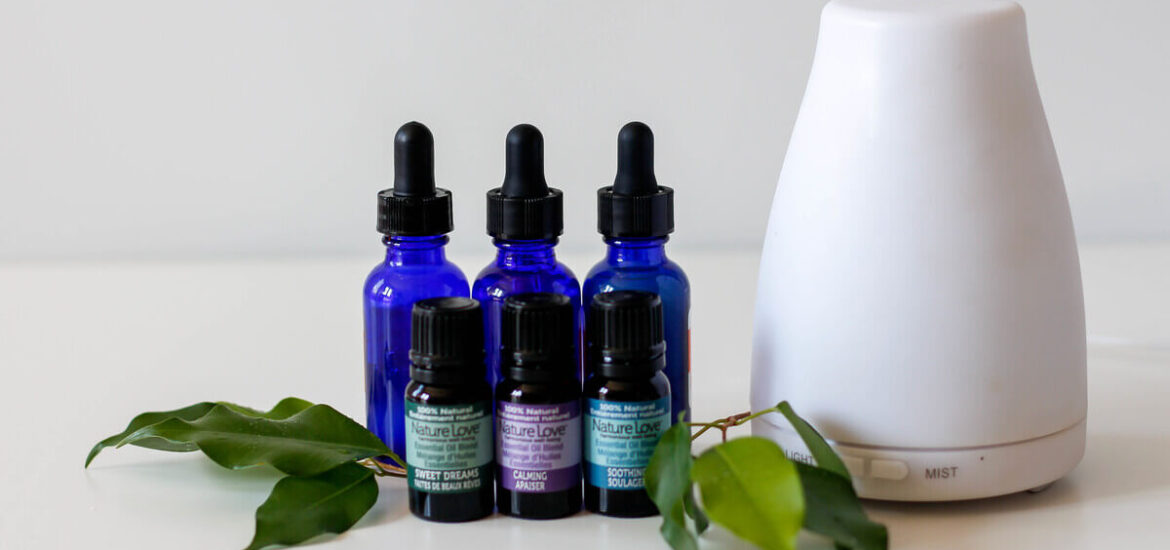Aromas have the remarkable ability to evoke memories, enhance moods, and transform spaces. When it comes to adding scents into our daily lives, we typically have two options: essential oils and fragrance oils. But what sets these aromatic choices apart, and how do they influence our well-being and environment? In this article, we’ll explore the differences between fragrance oils and essential oils, shedding light on their unique characteristics and applications.
Fragrance Oil: The Art of Synthetic Scents
Fragrance oils, often known as perfume oils, are synthetic scents that are designed to simulate specific odors. Perfumers and chemists make these oils to emulate natural aromas or to create entirely new ones. Everything from candles and scents to soaps and air fresheners contains them. Here are some essential characteristics of fragrance oil:
1. Synthetic Origin
- Fragrance oils are entirely synthetic, meaning they are human-made in a laboratory. They do not come from natural sources like plants or flowers.
 2. Consistency
2. Consistency
- Fragrance oils offer a consistent aroma, which can be precisely controlled and reproduced. This consistency makes them ideal for products where a specific scent is required.
3. Versatility
- These oils can be customized to imitate a vast array of scents, from fruity and floral to exotic and musky. This versatility allows for endless fragrance possibilities.
4. Long-Lasting
- Fragrance oils tend to have a longer-lasting scent compared to essential oils. This makes them suitable for products intended to provide a consistent and enduring aroma.
5. Stability
- Fragrance oils are more stable than essential oils, as they are not affected by factors like light and heat. This stability ensures that the scent remains intact over time.
Essential Oil: The Essence of Nature
Essential oils are concentrated liquids extracted from plants, flowers, trees, and various natural sources. These oils capture the pure essence of the plant, including its fragrance and therapeutic properties. Essential oils have a long history of use in aromatherapy, skincare, and natural remedies. Here are some fundamental characteristics of essential oils:
1. Natural Origin
- Essential oils are derived from natural sources, such as the petals of roses, the leaves of eucalyptus, or the rind of oranges. They are the true essences of these plants.
2. Variability
- Essential oils can vary in scent, potency, and quality depending on factors like the plant’s geographic location, growing conditions, and extraction methods. This natural variability can result in unique and complex fragrances.
3. Therapeutic Properties
- Essential oils are celebrated for their therapeutic benefits. Many are used frequently in aromatherapy for their possible health advantages because they contain soothing, anti-inflammatory, antibacterial, or antifungal characteristics.
4. Evaporation
- Essential oils tend to evaporate relatively quickly, which is why their scent may be more fleeting compared to fragrance oils. This rapid evaporation can be a desirable trait in aromatherapy.
5. Vulnerability
- Essential oils are sensitive to factors like heat, light, and air, which can cause them to degrade over time. Proper storage is essential to maintain their quality.
Comparison: Fragrance Oil vs. Essential Oil
1. Scent Authenticity
- Fragrance oils are designed to mimic specific scents and can sometimes lack the complexity and authenticity of essential oils. Essential oils capture the genuine aroma of the plant from which they are derived.
2. Therapeutic Benefits
- Essential oils are renowned for their therapeutic properties and are widely used in aromatherapy and natural wellness practices. Fragrance oils do not possess these same potential health benefits.
3. Customization
- Fragrance oils are highly customizable, making them ideal for creating a specific scent profile for products like candles and perfumes. Essential oils, while variable due to natural factors, offer a range of authentic scents.
4. Longevity
- Fragrance oils have a longer-lasting scent, which can be advantageous for products that require a consistent aroma over time. Essential oils tend to evaporate more quickly and may require reapplication.
5. Natural vs. Synthetic
- Essential oils are natural and derived from plants, making them a favored choice for those seeking organic and environmentally friendly options. Fragrance oils are synthetic and do not have a natural origin.
Applications: Where to Use Each
1. Aromatherapy
- Essential oils are the go-to choice for aromatherapy, as they offer therapeutic benefits and authentic scents that can positively influence mood and well-being.
2. Skincare
- Essential oils are commonly used in skincare products, offering natural fragrance and potential skin-enhancing properties. Fragrance oils can also be used for fragrance in skincare, but they do not provide the same therapeutic benefits.
3. Home Fragrance
- Both essential oils and fragrance oils are suitable for home fragrance products like candles, diffusers, and air fresheners. Essential oils are favored for their natural authenticity, while fragrance oils offer an extensive range of scents.
4. Perfumes and Cosmetics
- Fragrance oils are often used in perfumes, cosmetics, and personal care products where consistency and long-lasting scent are essential. Essential oils are occasionally used for their natural and authentic fragrances.
5. Cleaning Products
- Essential oils, known for their antibacterial and antifungal properties, are increasingly used in natural cleaning products to provide fragrance and disinfecting power.
Conclusion
Fragrance oils and essential oils both offer distinct benefits and applications, and the choice between them largely depends on your specific needs and preferences. Whether you seek the therapeutic properties of essential oils or the consistency and versatility of fragrance oils, both can enhance your daily life with captivating scents. The world of aromas is a delightful and diverse one, and exploring these aromatic options can be a rewarding journey of sensory discovery.


